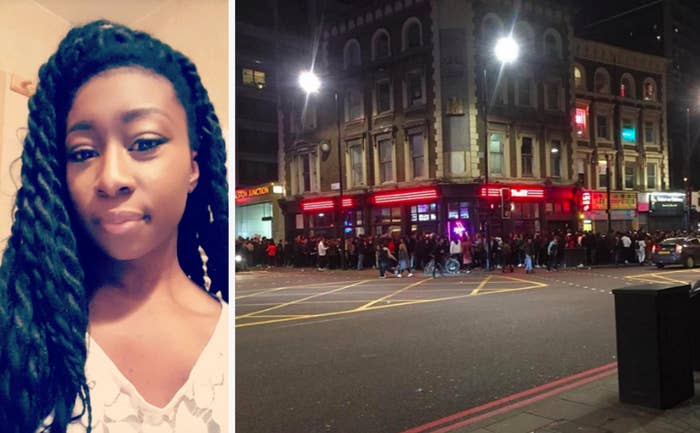
A teenager with cerebral palsy was left in tears after being refused entry to Visions Video Bar in Dalston, east London, last week by a manager and two security staff because of her condition.
Katouche Goll, 19, told BuzzFeed News that she was turned away as part of the club’s policy not to let disabled people into the venue for health and safety reasons.
Goll has lived with cerebral palsy – which affects mobility and coordination – since birth and needs to use two canes or crutches to get around when she’s outside her home.
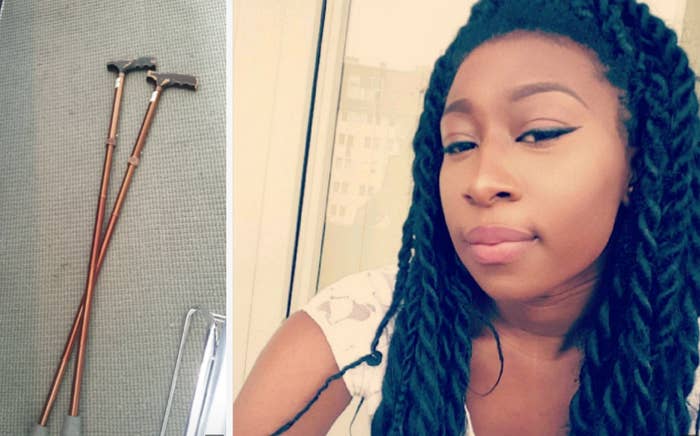
Goll arrived at the nightclub on Friday night just before 11:30pm. She said the bouncers initially mistook her for a passer-by. “They thought I was trying to get past them to continue down the street, but I explained to them that I was here to come to Visions,” she said.
“At first they asked me whether I was sure I wanted to go inside… and then they said something along the lines of ‘We’re sorry, but you can’t come in with your crutches because the venue is inaccessible for you.’”
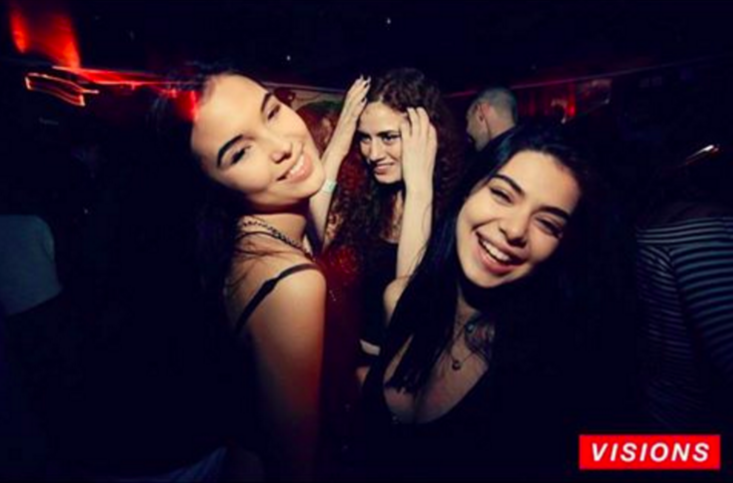
After several attempts to negotiate her way into the venue, the history student at SOAS, University of London, said she was eventually turned away.
“I went to a nightclub the night before, I have stairs in my house, I went to [Notting Hill] carnival on Monday, I lived by myself at university, I do everything for myself," she said.
“The manager was very dismissive and told me that after having [staff] meetings they’ve decided that it’s part of their policy not to let disabled people into the venue as they can’t guarantee their safety."
Last night I was turned away from Visions Video Bar in Dalston for being disabled
By law, venues are required to make reasonable changes or adjustments to ensure they are accessible to disabled people under the Equality Act.
In a statement to BuzzFeed News, Visions manager Gianno Parris said that allowing Goll inside the venue "was considered too great a safety risk for all in attendance including her". He also said that disabled people are required to notify the club in advance.
"Safety is the magic word that rests on the mind of every well-run licensed venue. Especially in times like these where London's nightlife is under attack," he said.
"If someone has a disability which inhibits their movement or the movement of those in close proximity, it's important that we are notified in advance so that we can make adequate preparations and where possible nullify any hazards."
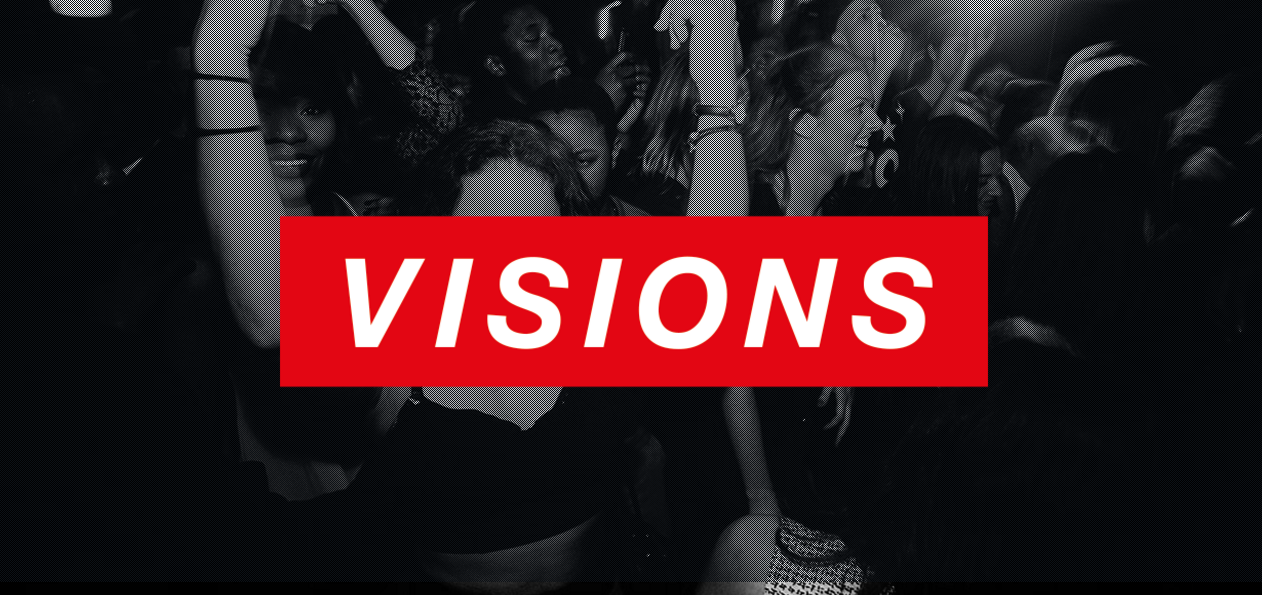
However, Goll said that her condition means that she plans ahead before going anywhere. She said she had called the nightclub several times earlier that day, but had no response.
Goll also said she had previously checked the club's website, but found no specific information about policies relating to disabled people not being able to access the venue. A Visions spokesperson told BuzzFeed News: "Katouche was in contact with us throughout the day on Facebook and did not mention her condition.”
Parris said that the venue's security had considered whether they could make an exception for Goll. "After observing her navigate the pavement and taking into consideration the capacity of the venue at time, potential alcohol consumption and the steep staircase leading down into the basement, it was considered too great a safety risk for all in attendance including her," he said.
Goll, who arrived at the club alone, said she found the experience very distressing and upsetting. And although she said people who witnessed the incident in the queue were supportive, there was nothing they could do to change the manager's decision not to allow her entry. “It was very disheartening...I don’t normally cry but I started to cry. I just left eventually," she said.
"Cerebral palsy is a condition I was born with, so I fully understand my capabilities – they were turning me away because they thought they knew my condition more than me... This is what happens when you’re disabled: People always think they know better than you about the things you want."
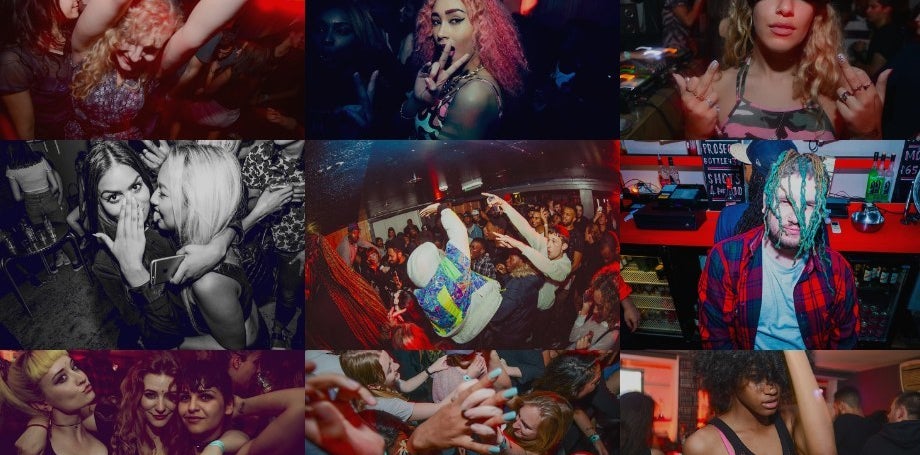
After she shared her story on social media, Goll said, some people showed no sympathy and continued to tell her that the club made the decision for her own good.
She was upset by the way some people responded, but not surprised. "I know that clubs in London are inaccessible, and I understand that it’s a problem," she said. "But in the meantime I refuse to be deprived of that aspect of my social life because of it."
Philip Connolly, a spokesperson for the charity Disability Rights UK, told BuzzFeed News that disabled people have the same rights to enjoy themselves as everyone else.
“It's surely time the club trained its security staff to host disabled customers instead of asking them to leave," he said.
"Disabled people have the same rights to enjoy themselves as anyone else. Nightclubs cannot provide a less favourable service to disabled customers than anyone else. To do so is likely to be direct discrimination."
